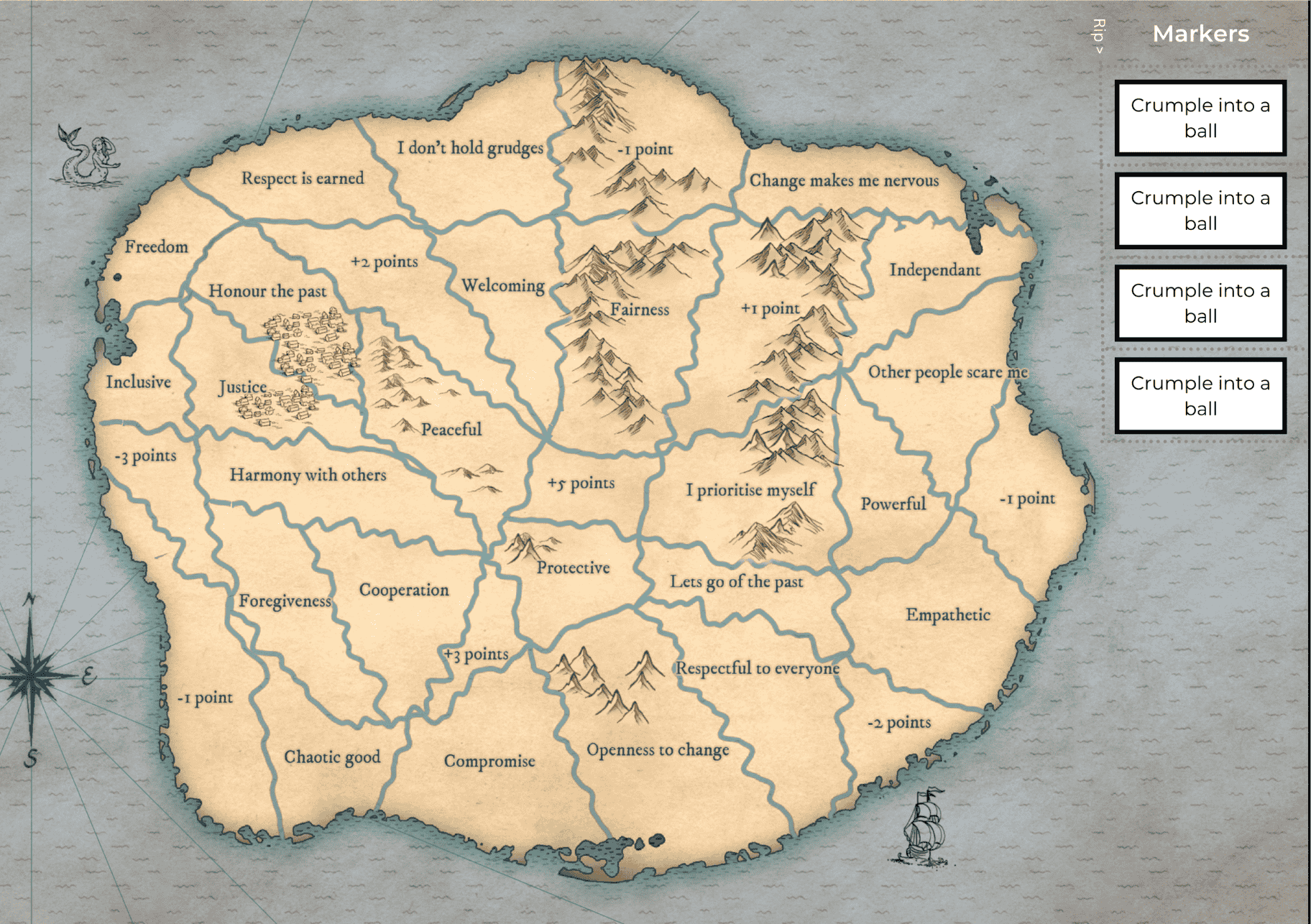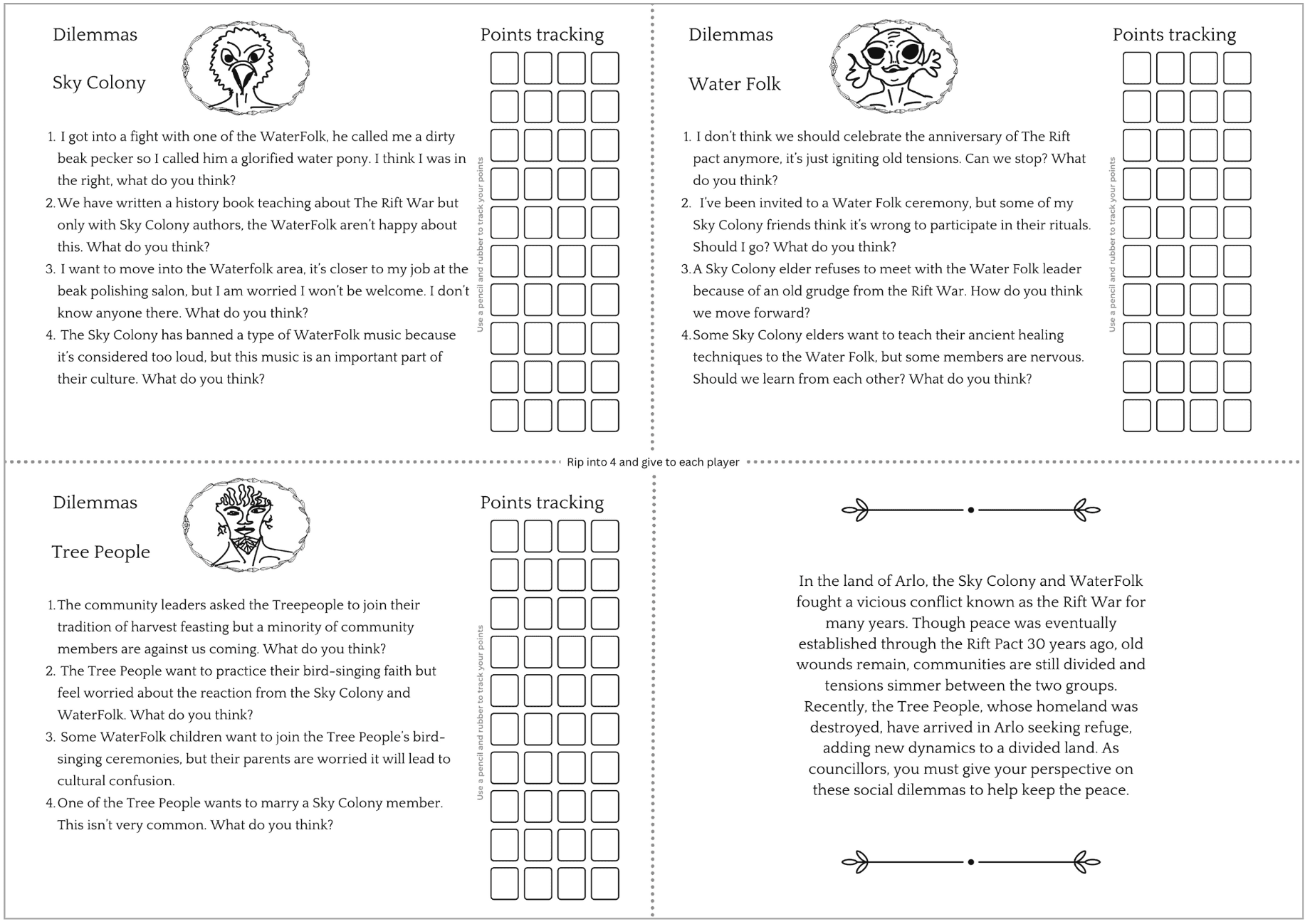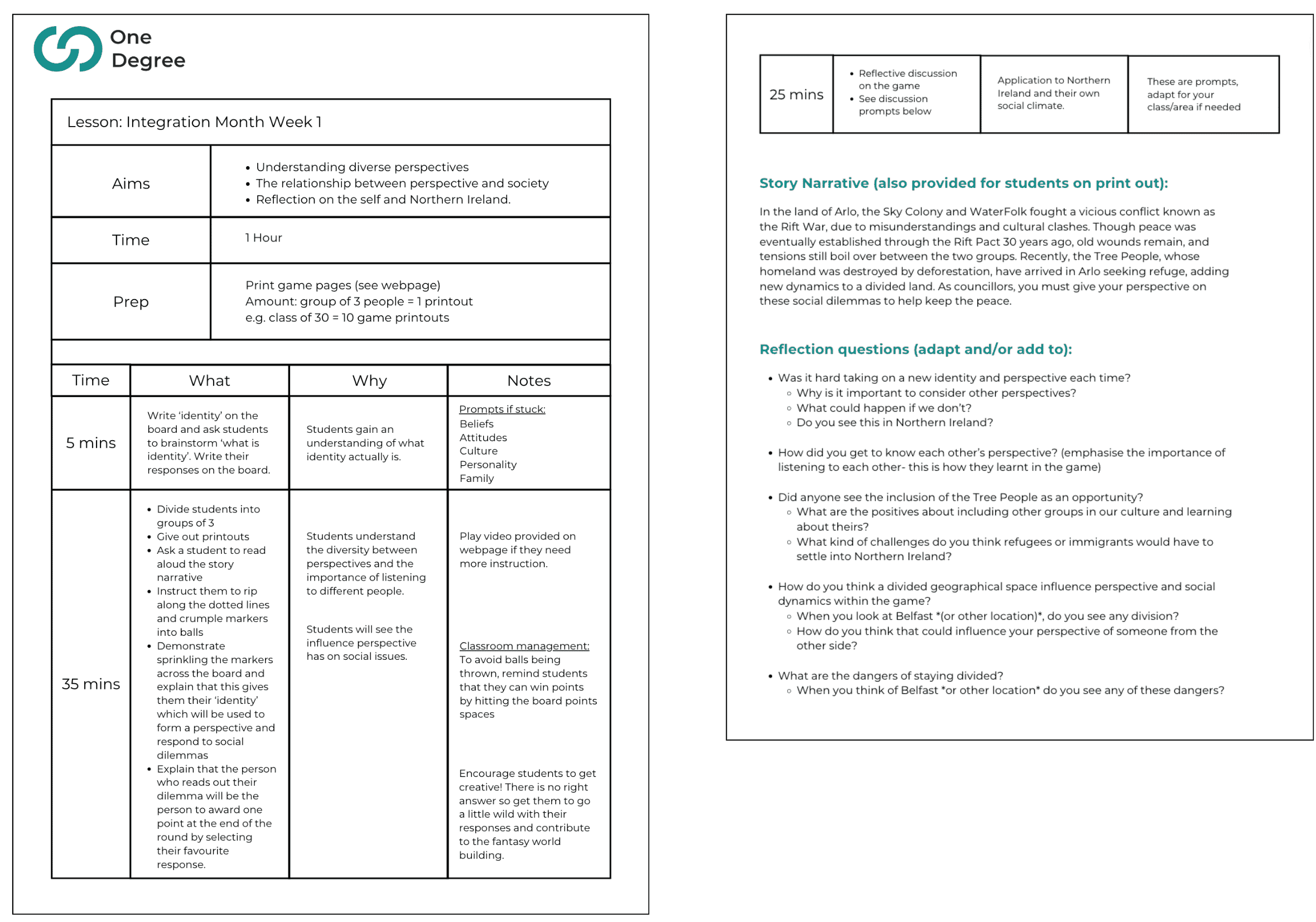
Katherine Mckenna
I’m drawn to complex, wicked problems and enjoy applying systemic approaches to develop effective interventions for meaningful social change.

I’m drawn to complex, wicked problems and enjoy applying systemic approaches to develop effective interventions for meaningful social change.

Photo by Zacc McGloughlin. Summer 2024 Counter-Protest, Belfast
I grew up in Northern Ireland, a country both complex and beautiful, which the following project is based on. I earned a first-class BSc in Psychology from Durham University and later taught ESL English abroad. Driven by values of empathy, acceptance, and forward-thinking, I am deeply passionate about education as I see it as the bedrock of societal progress and change—a belief I have carried into this project.
As a novice systemic designer, I aspire to make a meaningful impact on people’s lives. I aim to address not just immediate challenges but also contribute to long-term societal progress. With skills in creative thinking, critical analysis, and really digging deep into problems, I am eager to apply these abilities to tackle complex systemic challenges in my professional career.
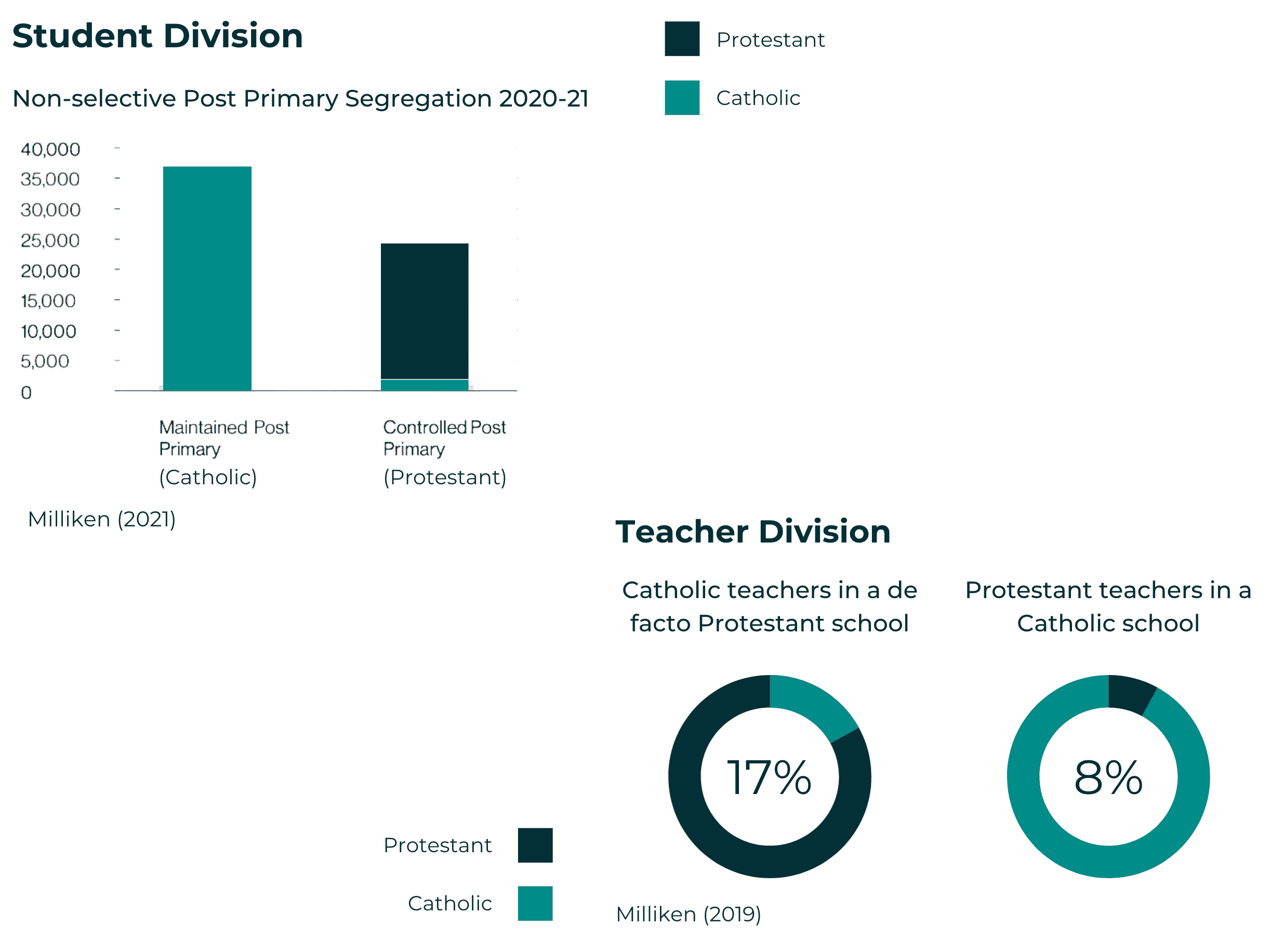
Post-conflict Northern Ireland operates a highly divided education system. Whereby children can reach adulthood without a simple conversation with the other side. This phenomenon is known as ‘cultural encapsulation’. This encapsulation exacerbates and ‘entrenches’ the difference between groups, ultimately facilitating the development of discriminatory attitudes.
Teachers are a central and continuous influence in a child’s life. However, Northern Irish teachers tend to be employed in community-consistent schools thus reinforcing cultural encapsulation.
There is, therefore, an opportunity to explore how to encourage teacher mobility across community lines in Northern Ireland.
By applying a systemic approach, I confronted the challenge from multiple perspectives, combining a broad overview from experts with deep qualitative insights from Northern Irish teachers. Through comprehensive secondary research, I developed a strong foundation of knowledge. I worked to ensure my methods were strategically designed to address the specific needs of the project. This blend of big-picture thinking and targeted analysis defines my professional identity and approach.
Sample: 5 Experts
Sample: 6 N.Irish Teachers
Sample: 5 N.Irish Teachers
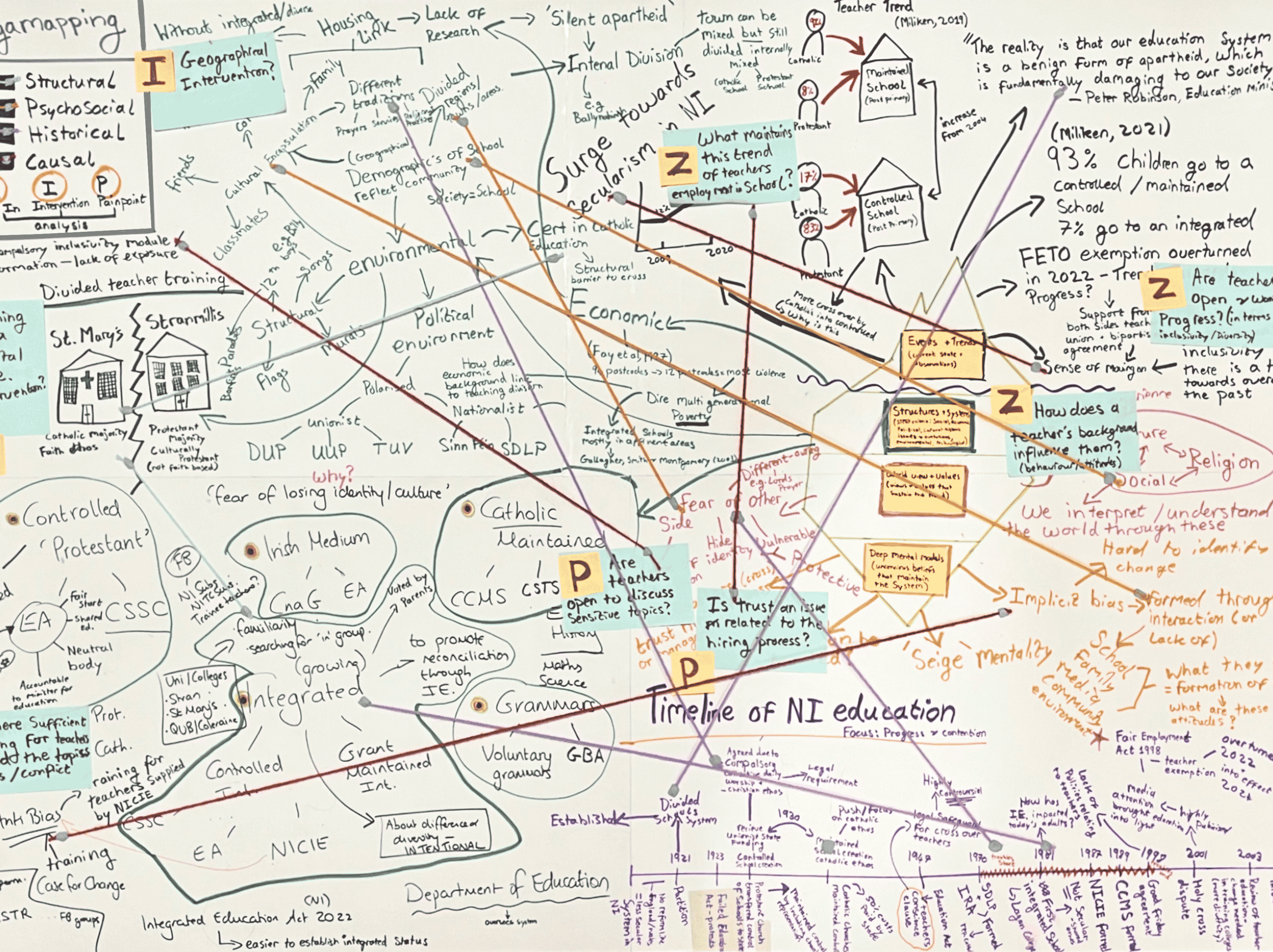
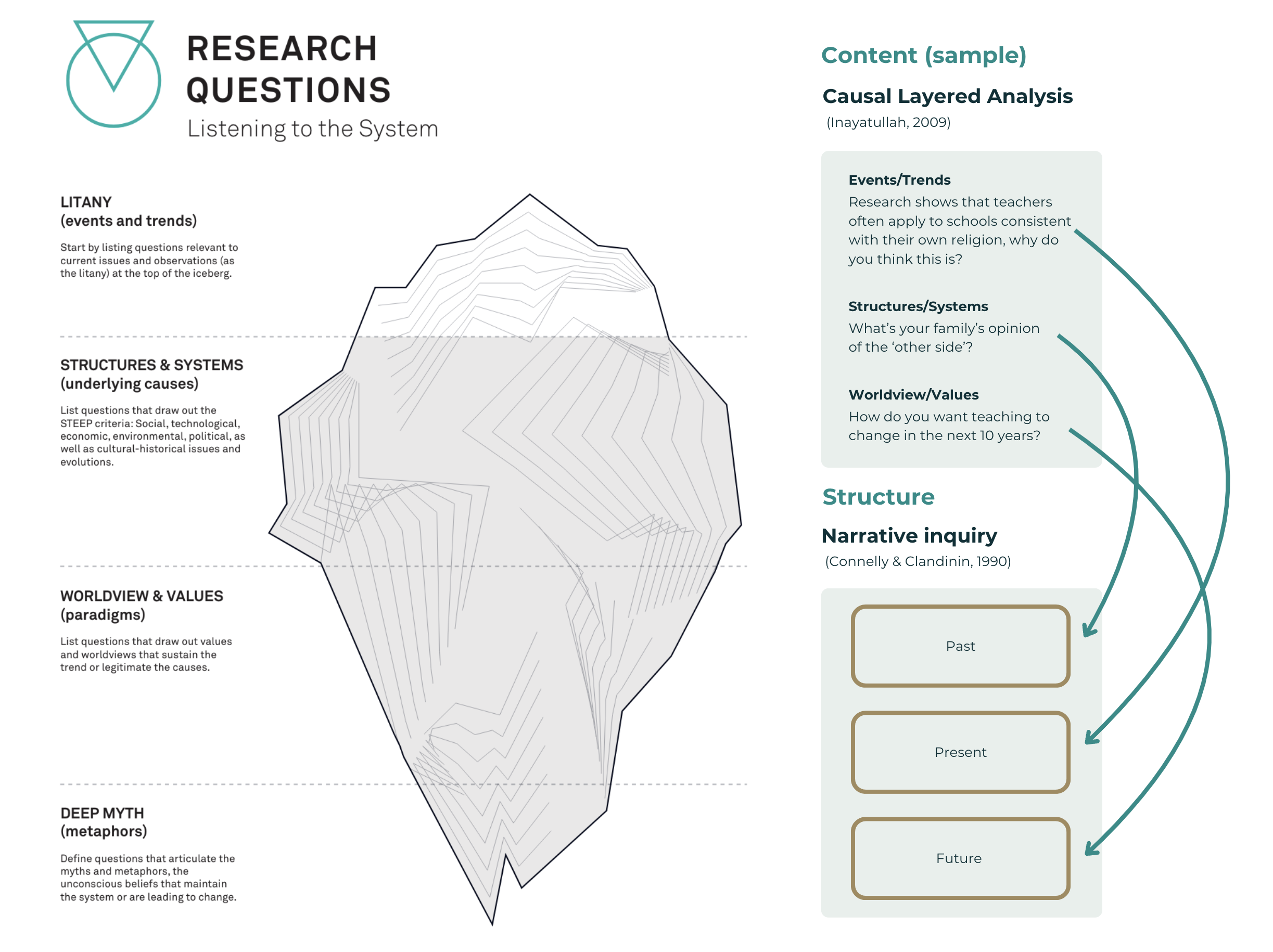
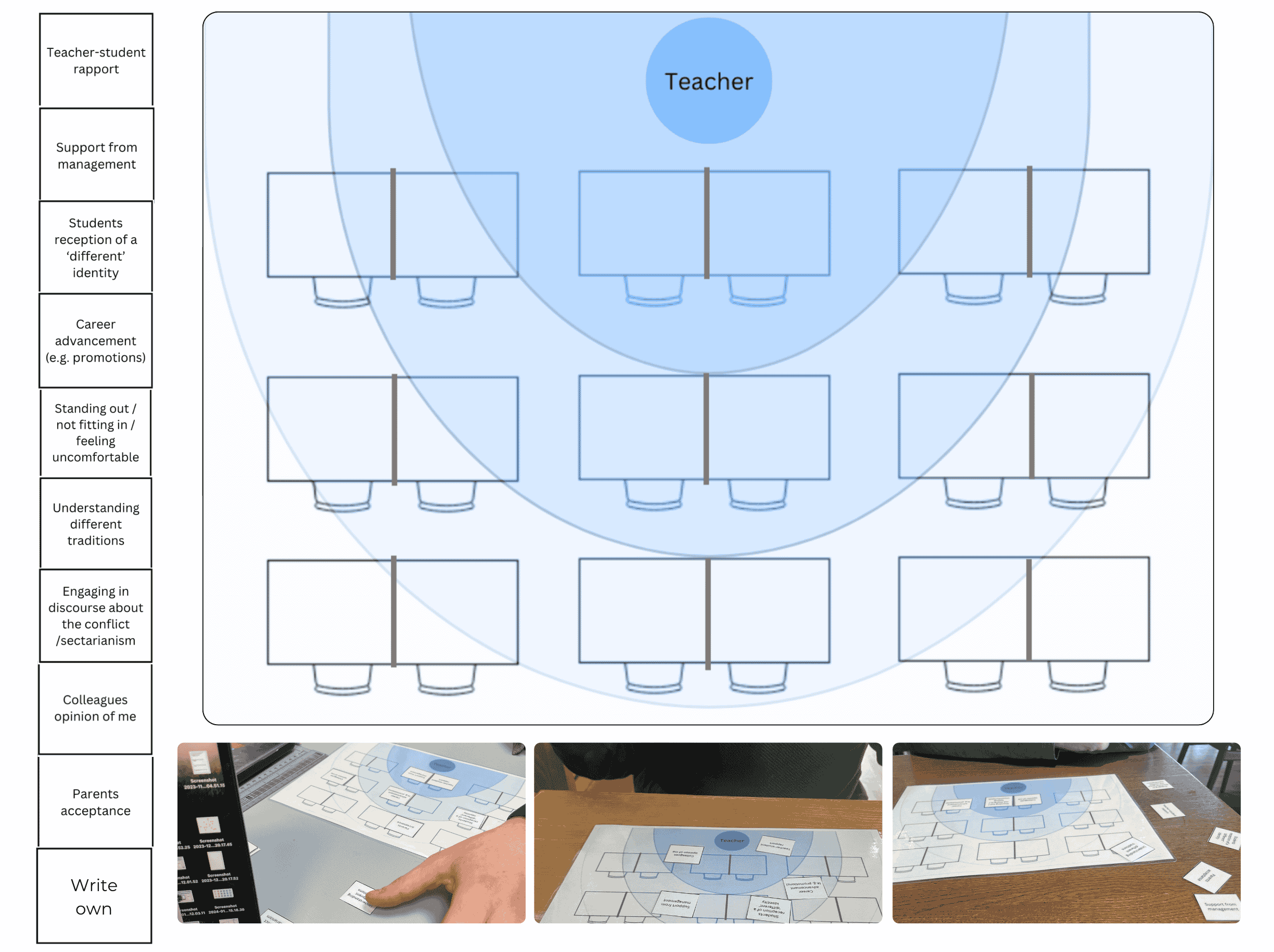
After conducting a thematic analysis, I took a step back to view the big picture and began to connect a chronological sequence of insights. This revealed an underlying cyclical process at the core of the issue, preventing teacher mobility across community lines in Northern Ireland and evidences my analytical ability to uncover patterns within a complex system.
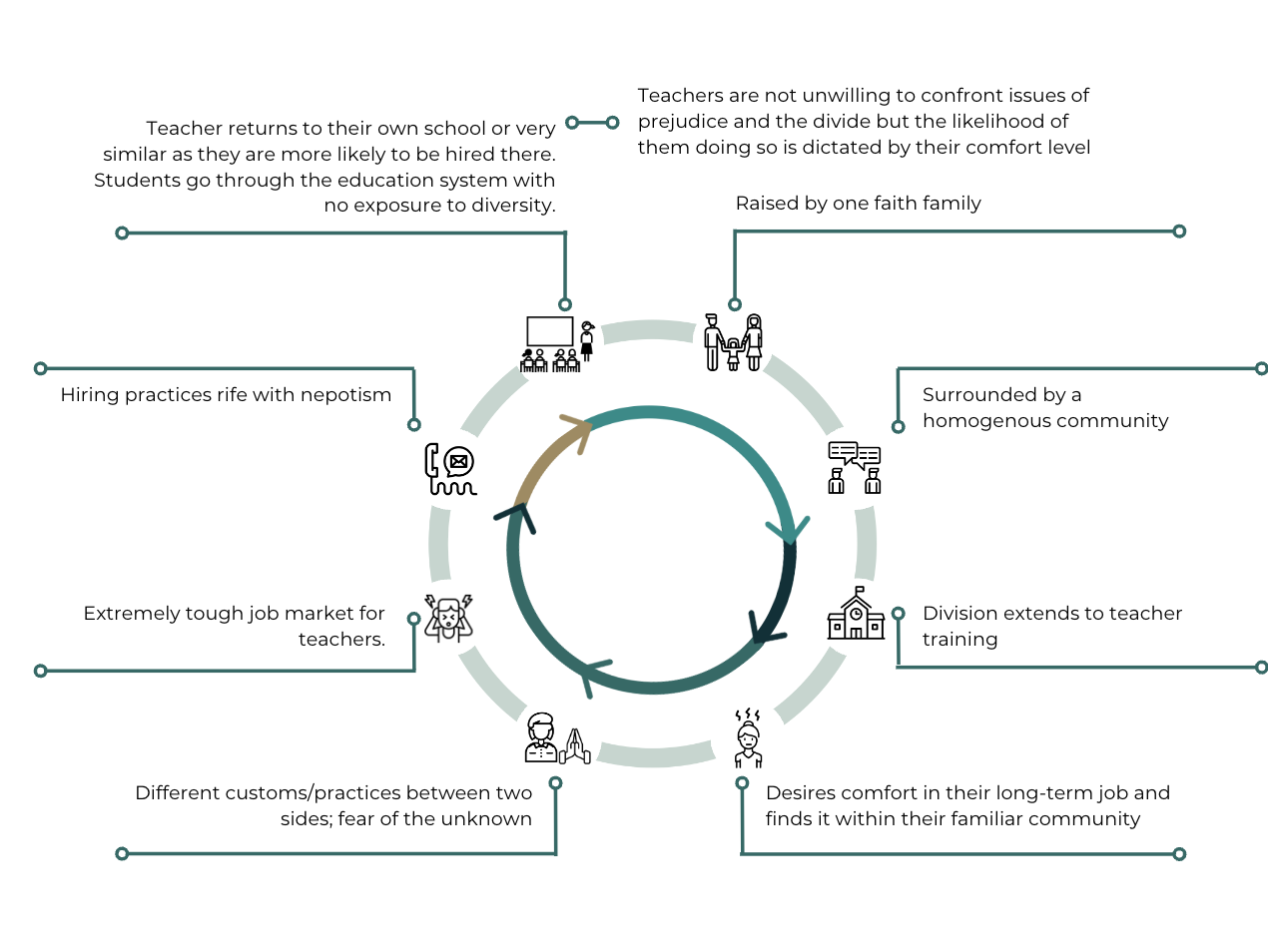
I iterated my gigamap into a visual piece, ensuring it was easy to communicate my project to others, such as co-designers and participants. This also allowed me to integrate my primary research findings and evolve my understanding of the system.
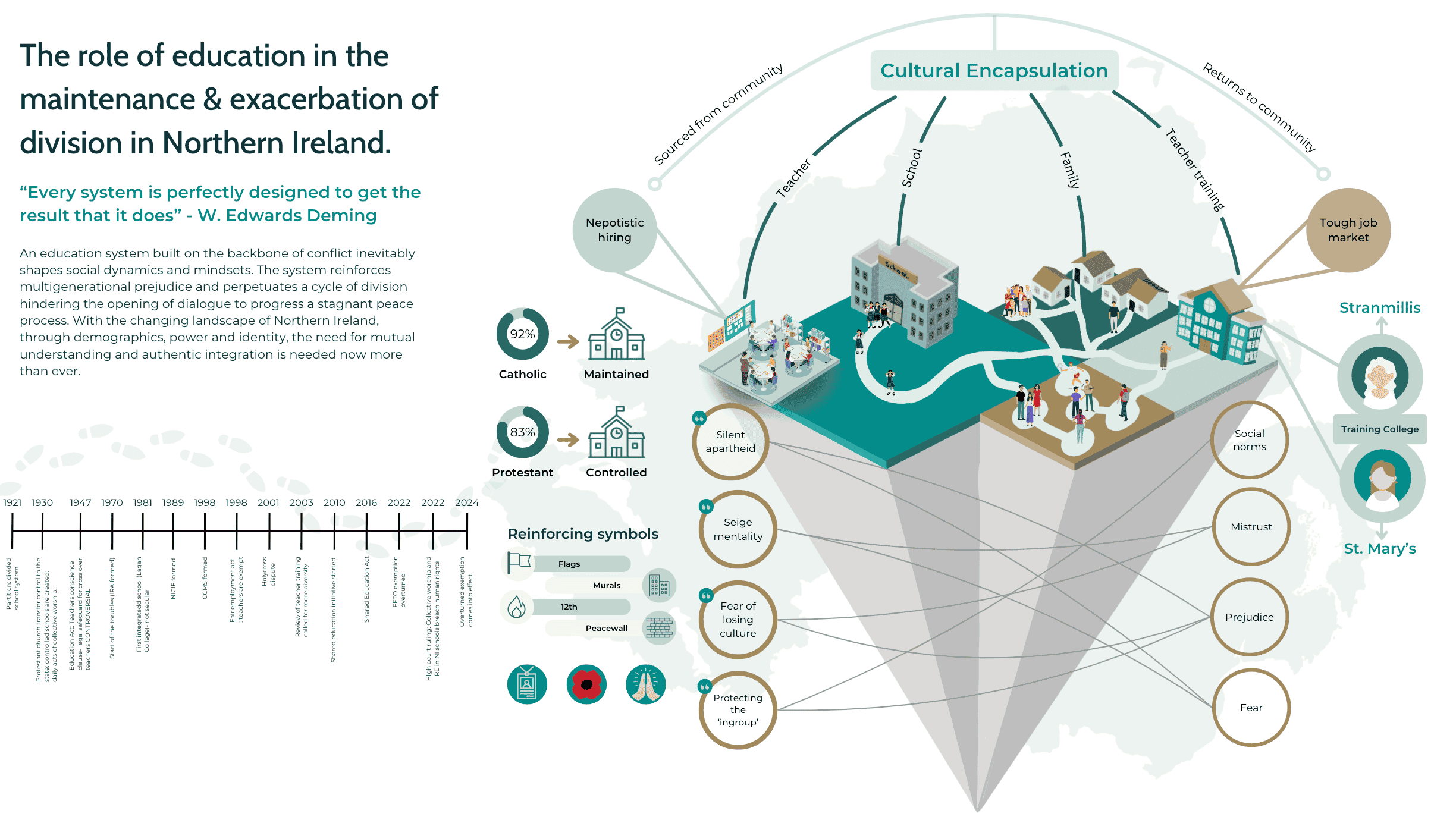
Due to the complexity of the challenge, I developed a systemic ideation method in the form of a board game. This turned the identified cycle of division into a game board and actants into players. Tokens were used to ‘buy’ into concepts at each stage of the circle. Players also had a secret token goal to represent the value give and take between actants which varied between players.
Thanks to this method, codesigners could ideate within a multidimensional arena, opening up conversation and deep reflection through roleplay and debate with other actants.
This evidences my innovative approach to work as I tailor my methods to the needs of the project.
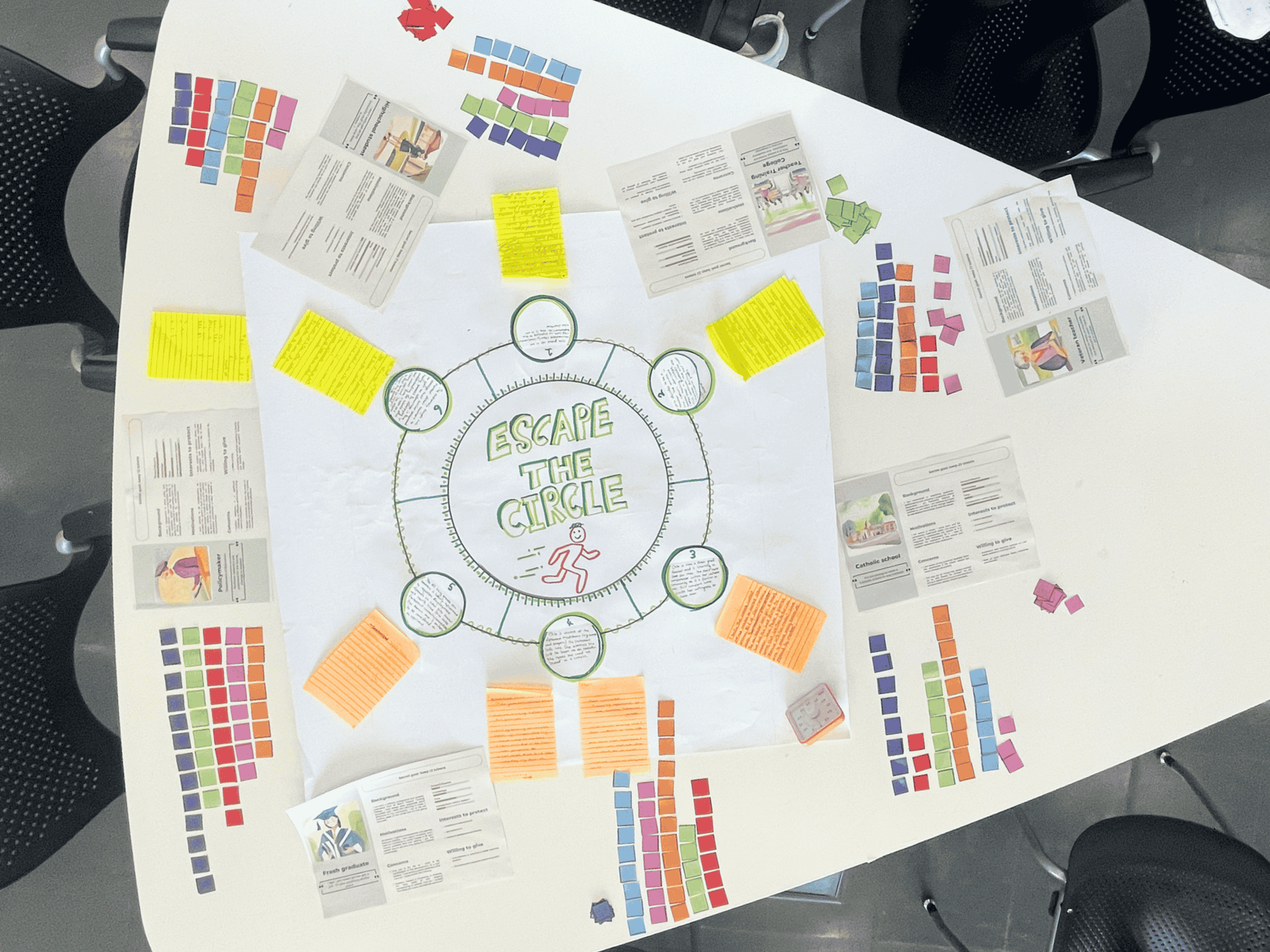
Through my serious play ideation method, I realised I was putting too much responsibility on teachers to overcome embedded systemic barriers. So, rather than encouraging teacher mobility, I switched my focus to helping teachers, R.E and LLW teachers specifically, expose students in a homogenous environment to diversity through a board game. This will serve as a tool to provoke conversation about diversity through a metaphorical exploration of real life within a safe space. By doing so, students will be encouraged to reflect on Northern Ireland and analyse their own role in society.
My design process is characterised by close collaboration with others, in-depth analysis of project requirements, and a strategic approach to meeting those needs.
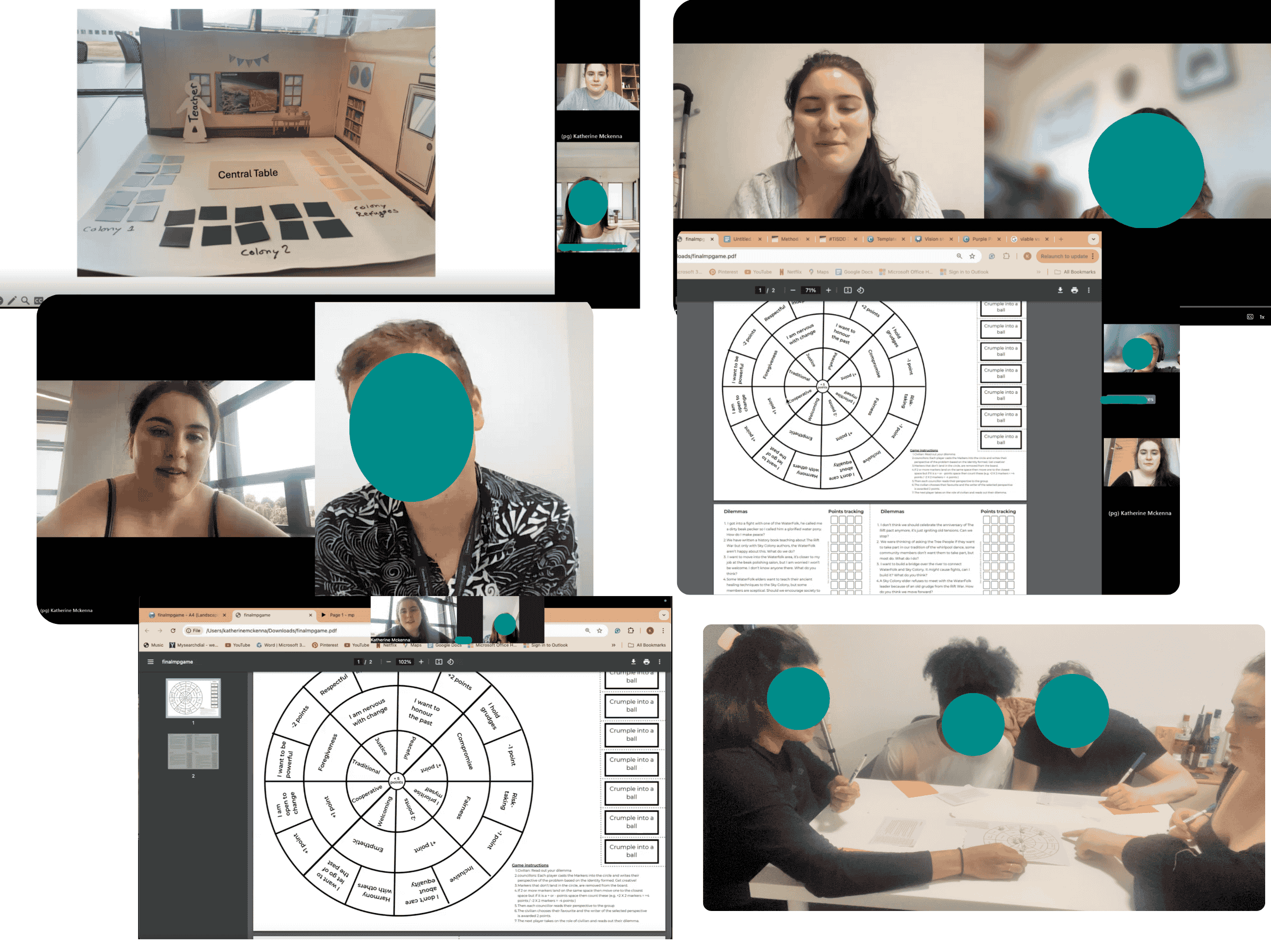
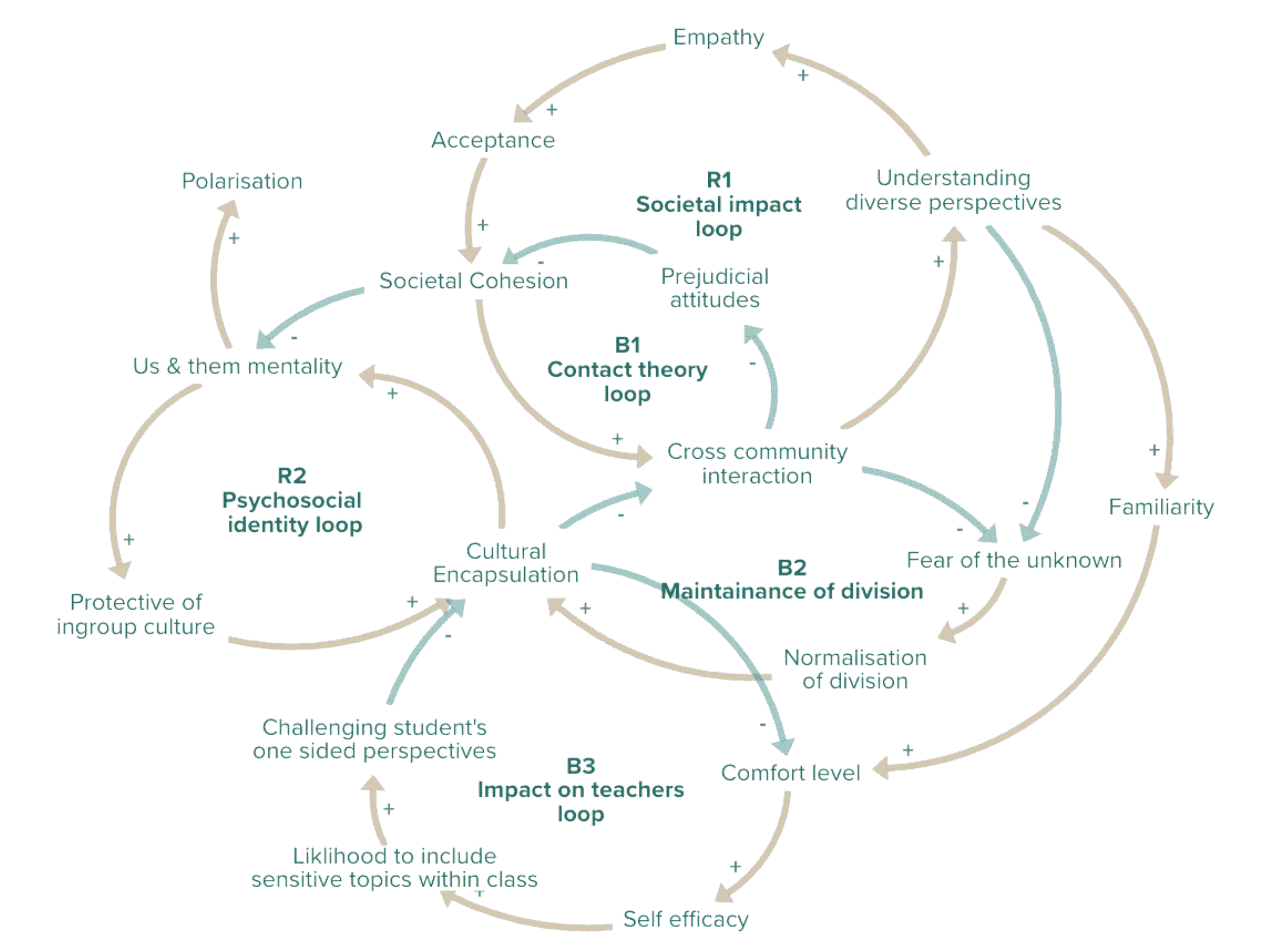
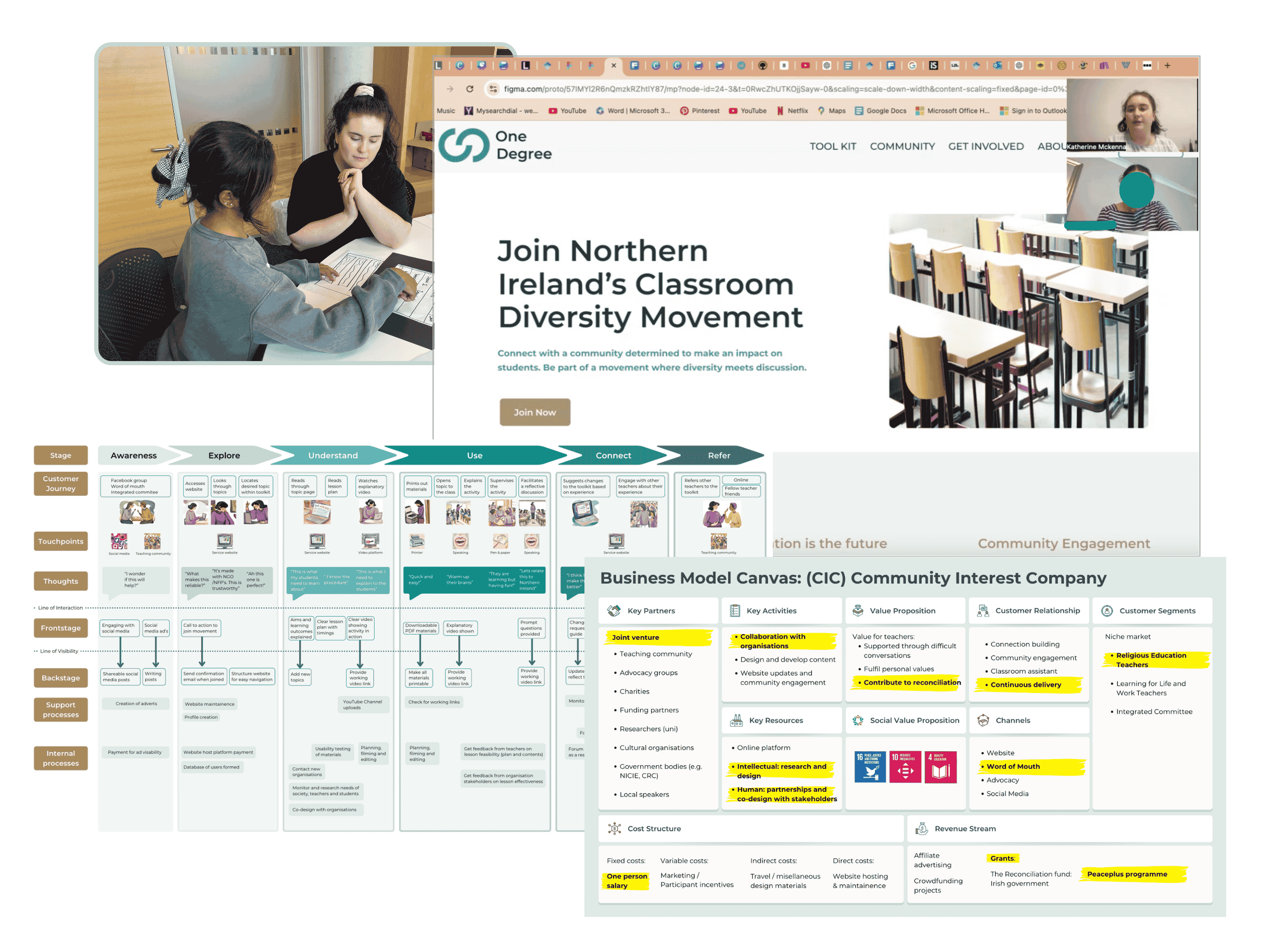
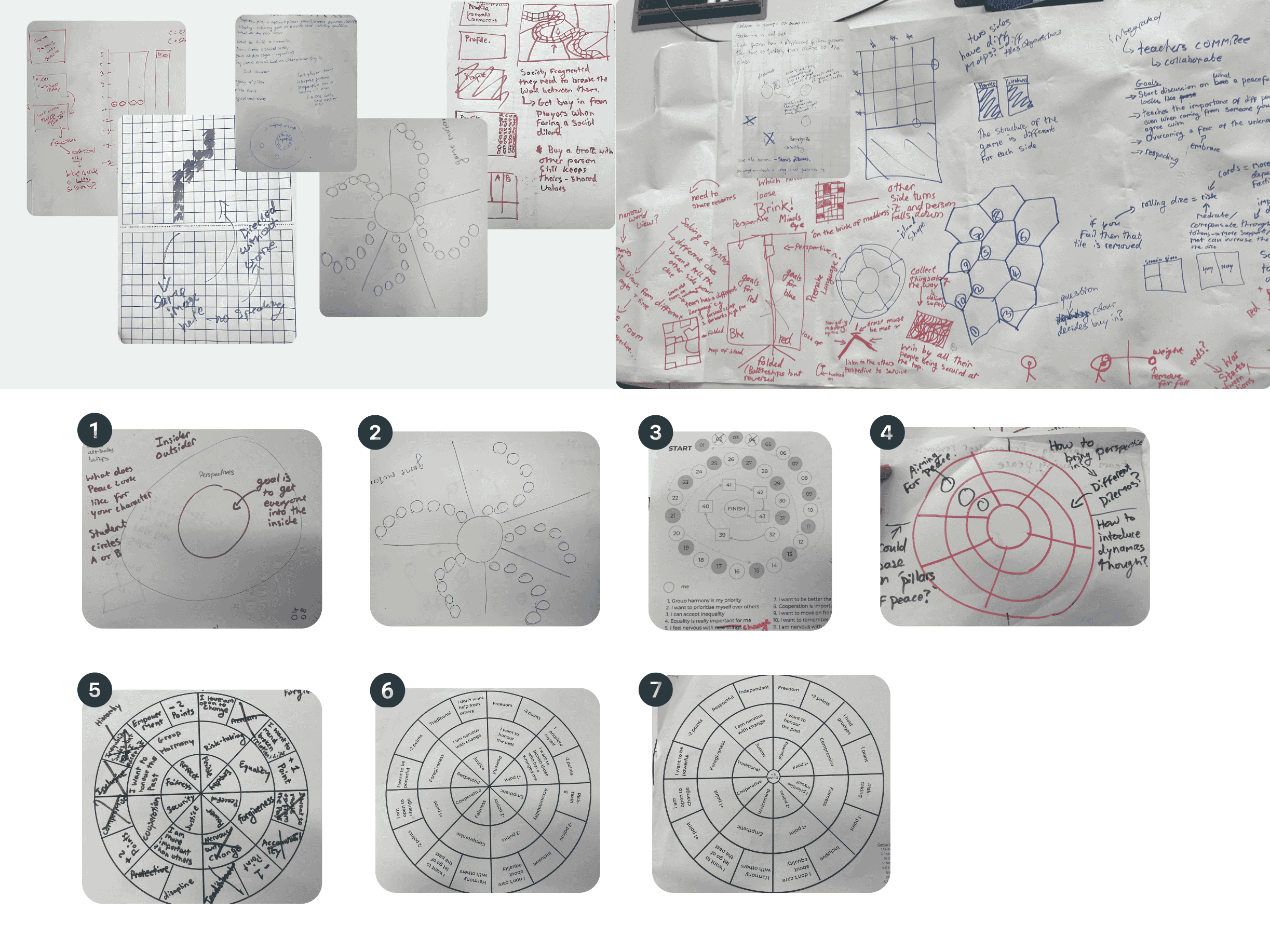
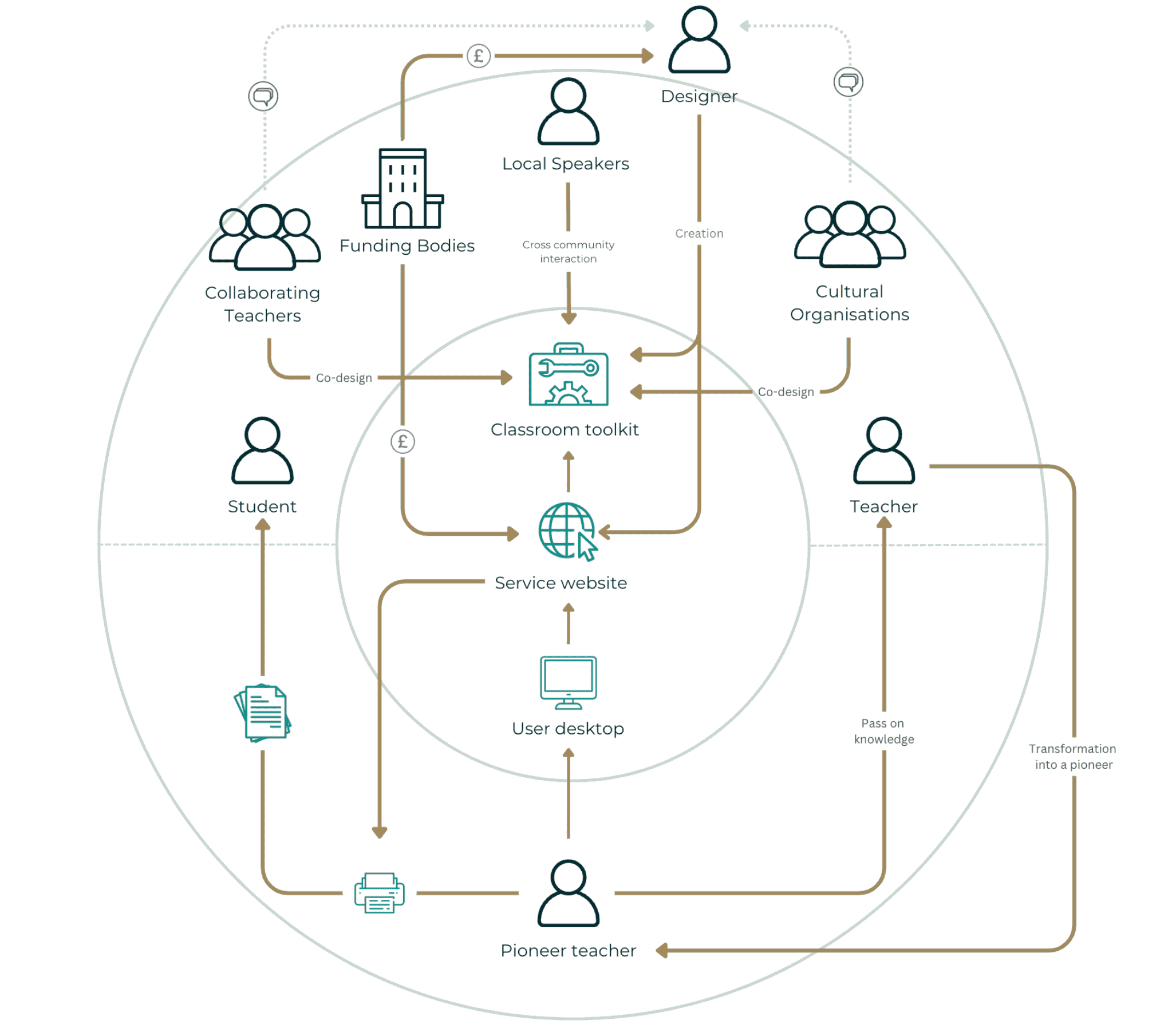
Lesson plans and resources such as printable games are co-designed with teachers and cultural organisations within Northern Ireland such as the Council for Integrated Education, Belfast Islamic Centre, and Council for Good Relations.
Teachers can access the website which contains a toolkit of these lesson plans and resources. Empowering and supporting them to bring diversity into the classroom.
The service is named “One Degree,” reflecting the core ideology behind this work. The concept is simple: instead of the traditional six degrees of separation between individuals from different communities, I aim to reduce it to just one degree. This name encapsulates my vision of building authentic connections and breaking down barriers between people of different backgrounds.

I designed a class to evidence the value this service can have. This game encourages students to take a new perspective on a societal issue, then they are led through a reflective discussion. The teacher is provided with a full lesson plan including reflective questions. This resource from One Degree provides a self-reflective activity, offering valuable insights into students’ own perspectives and highlighting how their views can differ from others. Overall, achieving the aim of understanding diverse perspectives and decreasing discriminatory attitudes (Shih et al, 2009).
